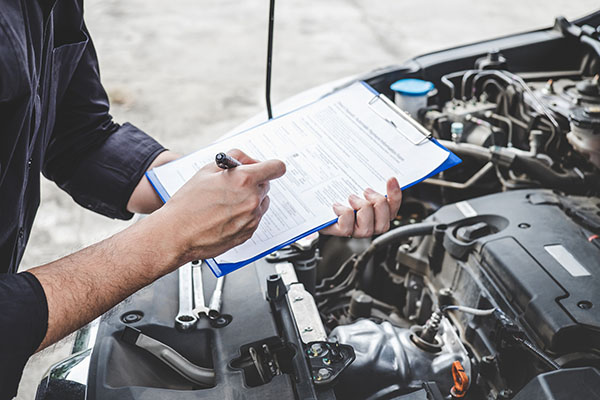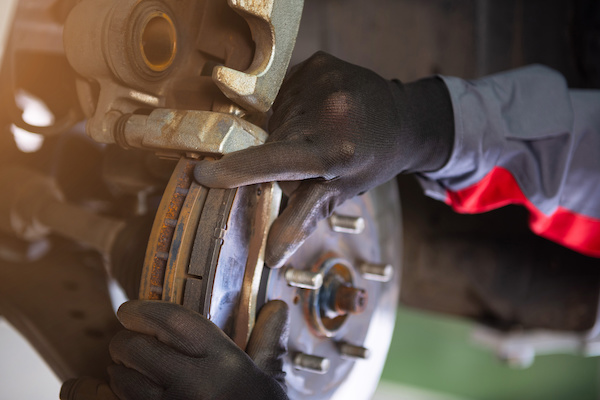Posted on 12/22/2023
.jpeg)
In the tapestry of automotive care, one often-overlooked chore can significantly impact the lifespan of your vehicle's tires. We're talking about tire rotation. Do you want to know what it is, why it's important, and when you should do it? If so, you've come to the right place! Together, we'll uncover the secrets of this crucial maintenance task and make sure you understand everything you need to know. Let's dive in! Understanding the Tire Tread Tires don't wear out evenly. The front tires may bear the brunt of steering and braking forces, causing them to wear differently than the rear ones. This is where tire rotation steps in as the choreographer ensures an even distribution of wear and tear. The Tire Rotation Routine - When to Step ... read more
Posted on 11/27/2023

Think of the 30/60/90K mile markers as crucial checkpoints that ensure your vehicle's longevity and peak performance. They are the pit stops in your car's race through life, where experts peer under the hood and fine-tune your ride. What can seem like mere numbers actually guard the secret to extending the lifespan of your trusty metal steed. Let's unveil these milestones and unravel why and how they keep your vehicle cruising smoothly down those endless roads. Understanding the 30/60/90K Service Intervals The concept is simple: every 30,000 miles, give or take a few, your car deserves a thorough check-up. But this isn't just any quick glance-over. It's a detailed examination and service protocol tailored to safeguard against common automotive ailments that can occur over time. First Stop - The 30K Checkpoint Your car's first major check-up at 30,000 miles is akin to a young athlete's physical – ensuring eve ... read more
Posted on 10/30/2023
.jpeg)
As a vehicle owner, it's understandable that you may not be well-versed in the intricacies of automotive mechanics, but it's essential to understand transmissions. They are a vital component that plays a significant role in the smooth operation of your vehicle. Whether you have an automatic or manual transmission, learning the basics of maintenance and troubleshooting can be overwhelming. However, taking the time to grasp the fundamentals of transmissions can ensure the longevity of your vehicle. So, don't worry, we're here to help you understand the complexities of transmission systems and the nuances of proper care. What is a Transmission and How Does It Work? The transmission serves as the bridge between the engine and the wheels, facilitating the transfer of power and enabling the vehicle to shift gears and achieve varying speeds. In automatic transmissions, the system uses a torque converter and planetary gear sets, while manual transmissions rel ... read more
Posted on 9/30/2023

If you live in California, you're probably familiar with the biennial smog test requirement. This test is designed to ensure that your vehicle's emissions meet the state's environmental standards. However, what happens if your car doesn't pass the California smog test? Don't worry – RM Automotive is here to provide you with insights and guidance. Why Did My Car Fail the Smog Test? There are several reasons why your car might fail the smog test. Common issues include: High Emissions: Your vehicle may be emitting pollutants above the acceptable limits due to a malfunctioning component like the catalytic converter, oxygen sensors, or fuel injectors. Check Engine Light: If your check engine light is on, it's an automatic smog test failure. This usual ... read more
Posted on 8/31/2023

When it comes to cars, the mention of high horsepower numbers brings a smile and a rush of adrenalin to every car owner. The more, the merrier, right? Well, not so fast. While high-horsepower vehicles are thrilling to drive, they come with a unique set of demands, particularly when it comes to brake care. That is solely due to the fact that if you are going faster you have to brake faster and stronger, but how is that done? What We Mean By High-Horsepower Let's start by acknowledging the allure of high-horsepower cars. They offer breathtaking acceleration, spine-tingling speed, and the kind of exhilaration that sends shivers down your spine. Such cars can include any and all that have a number higher than 300 for both horsepower and torque. The Price of Speed One of the key challenges of performance cars is brake fade. This phenomenon occurs when brakes get so hot that they lose their ability to grip effectively. The result? Longer stopping distances and reduced braking p ... read more